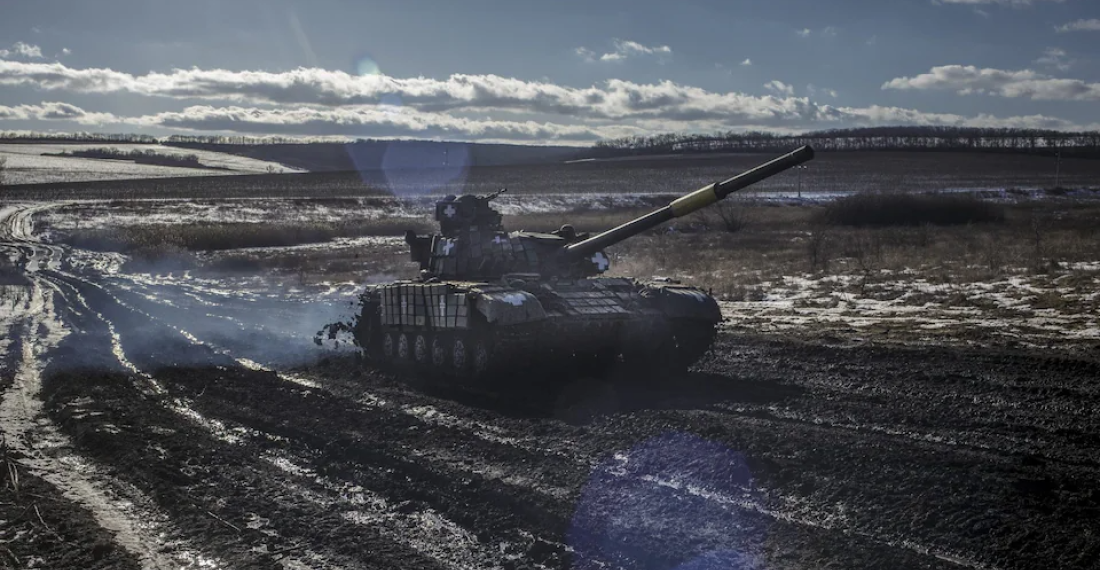In its latest intelligence briefing on the Russian invasion of Ukraine on Thursday (2 March), the UK Ministry of Defence has suggested that warmer weather around Bakhmut - the eastern Ukrainian town with a pre-war population of 70,000 that Russia has been trying to capture for months - may help the Ukrainians in their defence.
In the briefing, the UK Ministry of Defence wrote, "as Ukrainian forces continue their defence of Bakhmut, Donetsk Oblast, rising temperatures are now creating [...] muddy conditions [...] limiting cross country movement (CCM)."
"Poor CCM typically provides some military advantage to defending forces," the briefing adds.
The UK Ministry of Defence also notes that daytime temperatures around Bakhmut have risen to above freezing, and warmer than average forecasts over the next weeks will also likely decrease CCM.
"It is almost certain that by late-March, CCM will be at its worst following the final thaw. This will add further friction to ground operations and hamper the off-road movement of heavier armoured vehicles, especially over churned-up ground in the Bakhmut sector."
Muddy memories of last year
In the first weeks of their full-scale invasion, especially in efforts to drive around their infamous 56km traffic jam of military hardware that bore down on Kyiv, Russian forces infamously got stuck in mud having driven into fields to get around it.
This then resulted in many videos emerging online of Ukrainian farmers pulling abandoned Russian tanks out of the quagmire with tractors.
While getting stuck in what Ukrainians call "rasputitsa" was also a major problem for Russia in other parts of the country as well, Ukrainians have reportedly on occasion fallen foul of the springtime mud too.
Ukraine claims 150,000 Russian troops killed
Also on Thursday morning, the Ukrainian Ministry of Defence claimed that as many as 150,605 Russian troops have been "liquidated" since 24 February 2022.
As Russia has increased the intensity of assaults in the east of the country, the rate at which Russia has reportedly lost soldiers has dramatically increased.
It was only on 22 December 2022 that Ukraine claimed 100,000 Russian soldiers killed since the beginning of Russia's full-scale invasion.
Although these numbers are very difficult to verify, reports do suggest significant Russian losses in personel and equipment.






